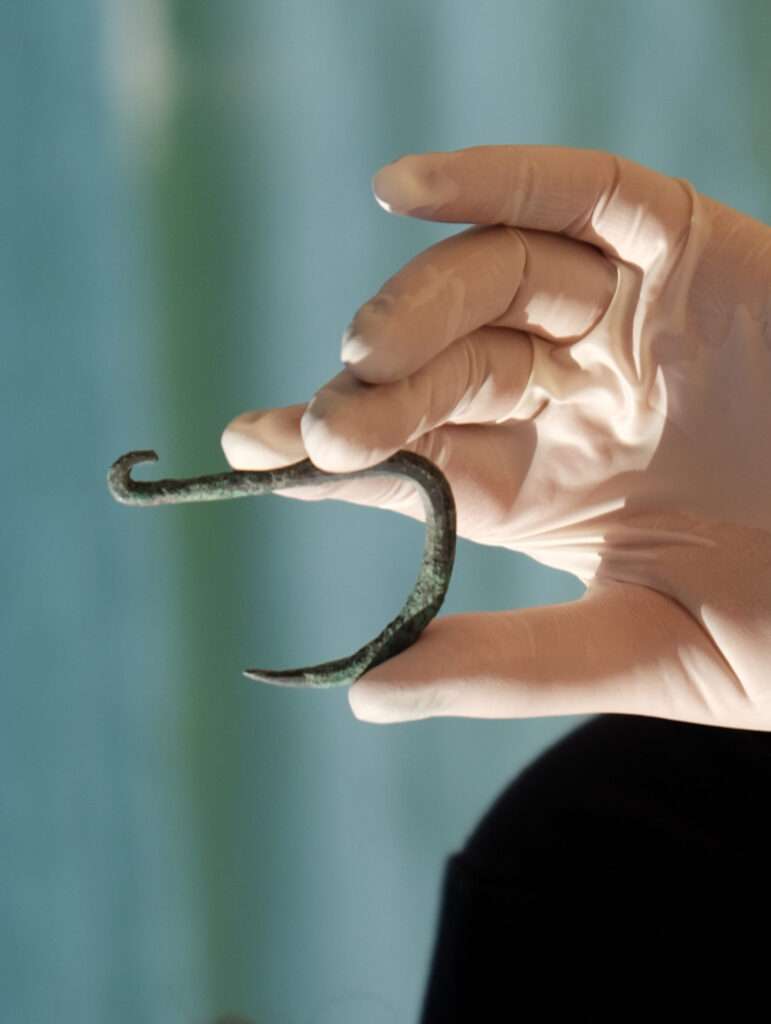Archaeologists in Israel have found a 6,000-year-old copper fishhook so large it may have been used to catch sharks.
The piece, which was unearthed during infrastructure work in the coastal city of Ashkelon, is 2.6 inches long and 1.6 inches wide.
Its size means it would have been used to catch sharks or other large fish in the Mediterranean during the Copper Age.
Yael Abadi-Reiss from the Israel Antiquities Authority (IAA), who called the find “luck, pure luck”, commented on how well-preserved the piece was given its age.
She said: “It was so big and beautiful that we thought it might be from another period but it wasn’t.”
The fishhook had turned green, but the researchers cleaned it. Abadi-Reiss said: “It’s so big that even if its external coating was damaged, a lot remained.”
In a statement obtained by Newsflash, the IAA said: “A 6,000-year-old copper fishhook – one of the oldest known in the world – possibly for fishing sharks or very large fish, was discovered in the Israel Antiquity Authority excavations carried out prior to the construction of the new Agamim neighborhood in Ashkelon in 2018.”
According to Dr Yael Abadi-Reiss, co-director of the excavation together with Dr Daniel Varga, both from the Israel Antiquity Authority: “This unique find is 6.5 cm long and 4 cm wide, its large dimensions making it suitable for hunting 2-3 m long sharks or large tuna fish.

“More ancient fishhooks found previously were made of bone and were much smaller than this one.
“The use of copper began in the Chalcolithic period and it is fascinating to discover that this technological innovation was applied in antiquity for the production of fishhooks for fishermen along the Mediterranean coast.”
The IAA said: “In the Chalcolithic period, there were large villages around Ashkelon, whose economy was based on branches of agriculture still common today, such as the pasturing of sheep, goat and cattle, the cultivation of wheat, barley and legumes and the tending of fruit orchards.”
Dr Abadi-Reiss said: “We learn about the dietary habits of the people who lived here 6,000 years ago from the remains of animal bones found in ancient rubbish pits, from burnt wheat grains found in ovens, and from the hunting, cooking and food-processing tools retrieved, including flint sickles, and a variety of pottery vessels that served for the storage, cooking and the conservation of food by fermentation and salting.
“The rare fishhook tells the story of the village fishermen who sailed out to sea in their boats and cast the newly invented copper fishhook into the water, hoping to add coastal sharks to the menu.”
The IAA said: “The research on the copper fishhook is being undertaken by Dr. Yotam Asscher of the Israel Antiquity Authority and Magda Batiashvilli, and we await new discoveries on this fascinating artifact.”



